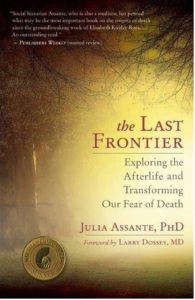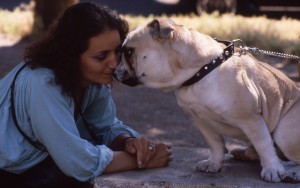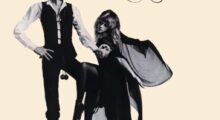 For the uninitiated, Julia Assante’s The Last Frontier might be a bit of a stretch. The aim is certainly ambitious, certainly admirable, and she will surely win as many fans as she will accolades. Deservedly, in this reviewer’s humble opinion. But the absolutely gushing forward by esteemed MD and author Larry Dossey does Assante no favors. But then again, maybe reaching for objectivity would have been a mistake. After all, how can one hope to be objective about a subject as eccentrically controversial as the after life?
For the uninitiated, Julia Assante’s The Last Frontier might be a bit of a stretch. The aim is certainly ambitious, certainly admirable, and she will surely win as many fans as she will accolades. Deservedly, in this reviewer’s humble opinion. But the absolutely gushing forward by esteemed MD and author Larry Dossey does Assante no favors. But then again, maybe reaching for objectivity would have been a mistake. After all, how can one hope to be objective about a subject as eccentrically controversial as the after life?
The Last Frontier is an attempt to explain, mystify and appreciate the death, dying, and, most prominently, the after-death experience, and there could perhaps be no one more qualified than Assante to tackle what seems so impossible a field. With a PhD from Columbia University, she describes herself as a mystic, medium, therapist and scholar, a heady combination to be sure. For the most part her writing is lucid, engaging and unpretentious. In the introduction she states: “In the modern era, the exact nature of the afterlife stands on rapidly shifting sands, with individuals harboring widely divergent opinions.” And she doesn’t mean in a purely New Age-y, faux-Eastern, lovey-dovey karmic sense (though all of that plays in as well). Yes, she’s speaking about spiritualism, but she’s also speaking about science, psychology and consciousness. She addresses our tentative early forays into study of the Higgs-Boson (the so-called ‘God Particle’), string theory, and quantum mechanics, where conventional understandings of time and reality do indeed stand on unsteady ground. But the bulk of the book is spent validating the “after death” experience, and she is armed with a surfeit of carefully documented stories, studies and polls (some of which say up to 72% of us have had an after death encounter of some kind) to back up her assertions. How many of you out there have once thought you’ve seen, heard or felt a lost friend or relative? Or even someone you’ve never met? Someone from another era? I myself have not, but I can think of at least four or five people who claim that they have. The value of near-death experiences, and the sense of enlightenment, fulfillment, and clarity that they engender are fairly universally accepted. To get all of this into a single book is quite an undertaking, and yet, I wonder if Assante might have bitten off more than she can chew. When she starts getting into the mechanics of visitations, and instance after instance of sighting, experience and past and future life flashback, the reader might be forgiven for tuning out. But, then again, she has a point. Are we to simply discount all of these stories as the work of millions of over-active minds? And while we’re at it, why would an overactive mind be any reason to discount anything? Does it really matter if a visitation by a loved and mourned relative were “real,” or “genuine,” if the result is clarity and solace and the brightening of life on the part of the person who witnessed? And the disturbing prescience of these phenomena tends to get pretty hard to explain away. Assante recounts one instance of an emergency room patient whose out of body experience allowed him to visit a patient in the hospital several floors above him, and accurately describe his room down to the color of a shoe that was for some reason placed on the window sill. There are plenty more anecdotes where that came from. In fact, I’m sure we’ve all heard a few ourselves.
 And yet, in total there’s something a bit unconvincing in Last Frontier. Well, unconvincing is the wrong word. Unsatisfied. When I finished the book I just wasn’t satisfied — I felt like I’d been patronized even when Assante bent over backwards to be anything but patronizing. Maybe it’s that I found myself constantly checking her citations, and when I would see the title to a book called something strange and New Age-y like The Light Beyond or The Dead Are Alive: They Can and Do Communicate With You, I would nod knowingly and allow myself to discount her stated point. Not that Assante hadn’t convinced me, and believe me, really, I want to be convinced. Not that I’m just some blockhead disbeliever. Or, well, maybe I am. It’s just a little too hard to swallow: unequivocal belief in life after death, and somebody else (who’s still alive, by the way) who thinks they can tell me about it. Maybe I’m just not ready to read a serious book about the afterlife. I’m still thankful for Assante for having written it.
And yet, in total there’s something a bit unconvincing in Last Frontier. Well, unconvincing is the wrong word. Unsatisfied. When I finished the book I just wasn’t satisfied — I felt like I’d been patronized even when Assante bent over backwards to be anything but patronizing. Maybe it’s that I found myself constantly checking her citations, and when I would see the title to a book called something strange and New Age-y like The Light Beyond or The Dead Are Alive: They Can and Do Communicate With You, I would nod knowingly and allow myself to discount her stated point. Not that Assante hadn’t convinced me, and believe me, really, I want to be convinced. Not that I’m just some blockhead disbeliever. Or, well, maybe I am. It’s just a little too hard to swallow: unequivocal belief in life after death, and somebody else (who’s still alive, by the way) who thinks they can tell me about it. Maybe I’m just not ready to read a serious book about the afterlife. I’m still thankful for Assante for having written it.
- Assante urges us to face our fear of death. Psychologist Ernest Becker calls our Denial of Death our most basic subconscious hang-up.
- Read our review of a visitation put to paper.

 “The Last Frontier: Exploring the Afterlife and Transforming Our Fear of Death,” (2012) by Julia Assante
“The Last Frontier: Exploring the Afterlife and Transforming Our Fear of Death,” (2012) by Julia Assante


 “Songbird” by Fleetwood Mac
“Songbird” by Fleetwood Mac
 First the Wealth Gap, Now the U.S. Has a Growing Health Gap
First the Wealth Gap, Now the U.S. Has a Growing Health Gap
 How to Comfort A Dying Loved One
How to Comfort A Dying Loved One














